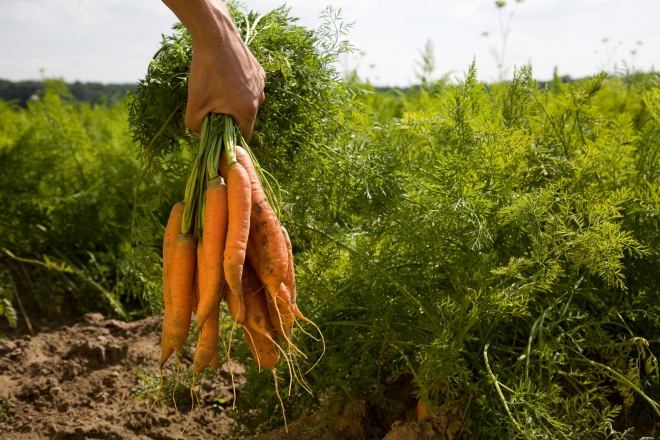What “organics” is, how it should be defined, and how it should be regulated is a hot topic right now from Brussels to Berlin. The reason? The European Commission has proposed a new legislative framework, and was met with broad opposition from organic farmers, politicians, and industry reps. The debate has been especially strong in Germany; a major weekly newspaper even devoted their cover story last week to the struggle of organic farmers to make ends meet when caught between land competition with biofuel producers and price competition with large-scale ‘organic’ producers that only follow the very bare-bone rules.

The sector is struggling; that much anybody can agree on. But I have to say I am surprised how far apart the opinions go as to the necessary fixes to get it back on track.
The Commission’s proposal is to support the principle-driven ‘original’ organic producers by making the rules more principle-driven as well. This means a tightening of some rules, the phasing out of exceptions currently allowed in the legislation, and a tightening of import criteria to ensure that the quality of products entering the market is actually comparable to the rules applicable here.
Producers, on the other hand, balk at ever-stricter rules that only incur extra costs for them. Example: currently, the maximum pesticide-residue levels actually make no difference between conventional and organic products. And yet, most consumers expect significantly lower amounts of residues as a defining characteristic of organic produce they buy. Changing the residue limit, producers say, puts undue costs on farmers that are already stretched for funds if they have to ensure that no chemicals drift onto their fields from neighboring enterprises.
In the German article, Member of European Parliament and rapporteur on the organic portfolio Martin Häusling (himself an organic dairy farmer) is critical:
“Organic producers do not farm in a vaccuum!”
Their closeness to conventional producers, so the argument, makes alignment with the proposed rules nearly impossible.
Similar arguments are used to argue against the phasing out of exceptions allowing non-organic inputs (such as seeds or feed) due to market unavailability. On the one hand, it does seem ridiculous to expect the use of only organic inputs if they aren’t available in the marketplace. The EC’s argument, though, is that these markets were never developed because the exceptions meant there was never a demand for organic seeds, for example. If you announce the phasing out with enough anticipation, so the hope, suppliers will know that the demand is coming and will provide organic seeds to producers once they demand it.
The whole issue, I feel, boils down to a fierce turf war over competencies. Organic farmers, on the one hand, say “we have developed these practices. We have defined our standard. Why does the EC have to try and re-define what organic means, and thereby unwittingly curtail the sector?” While policy-makers say “consumers have a right to their expectations too, and how can you complain about ‘pretenders’ lowering your prices if we can’t make adequate control mechanisms?”
I can see both sides so, so well. It’s just too bad that there seems to be this feeling of animosity between them – wouldn’t it be more helpful if there were real partnerships to figure out how to move the sector forward? But I guess that is politics for you – so many interests!
Who should define organics in your opinion? Only the farmers? Policy-makers? Consumers? Everybody?
I was shocked when I first started scratching the surface of organic policies; particularly the multitudes of “derogations” that organic farmers can have. With the right connections, the right words and the wrong attitude, organic farmers can basically farm just like “conventional” farmers, yet still sell their products as “organic”.
When I started asking questions about this, I was assured that an organic farmer who had had a derogation would not then be able to sell their produce as organic. However, every organic farmer I’ve known to use these derogations still does sell their produce as organic.
Most of the organic farmers I’ve worked with are genuine in their pursuit of better standards of land management and animal welfare and use derogations reluctantly and sparingly, but it is obvious that it is an open door that completely undermines my trust in the label “organic”.
So, I think everybody needs to be involved in the setting of standards. Consumers need some overarching safeguards to put meaning behind labels if those labels are intended to be more than just a marketing tool.